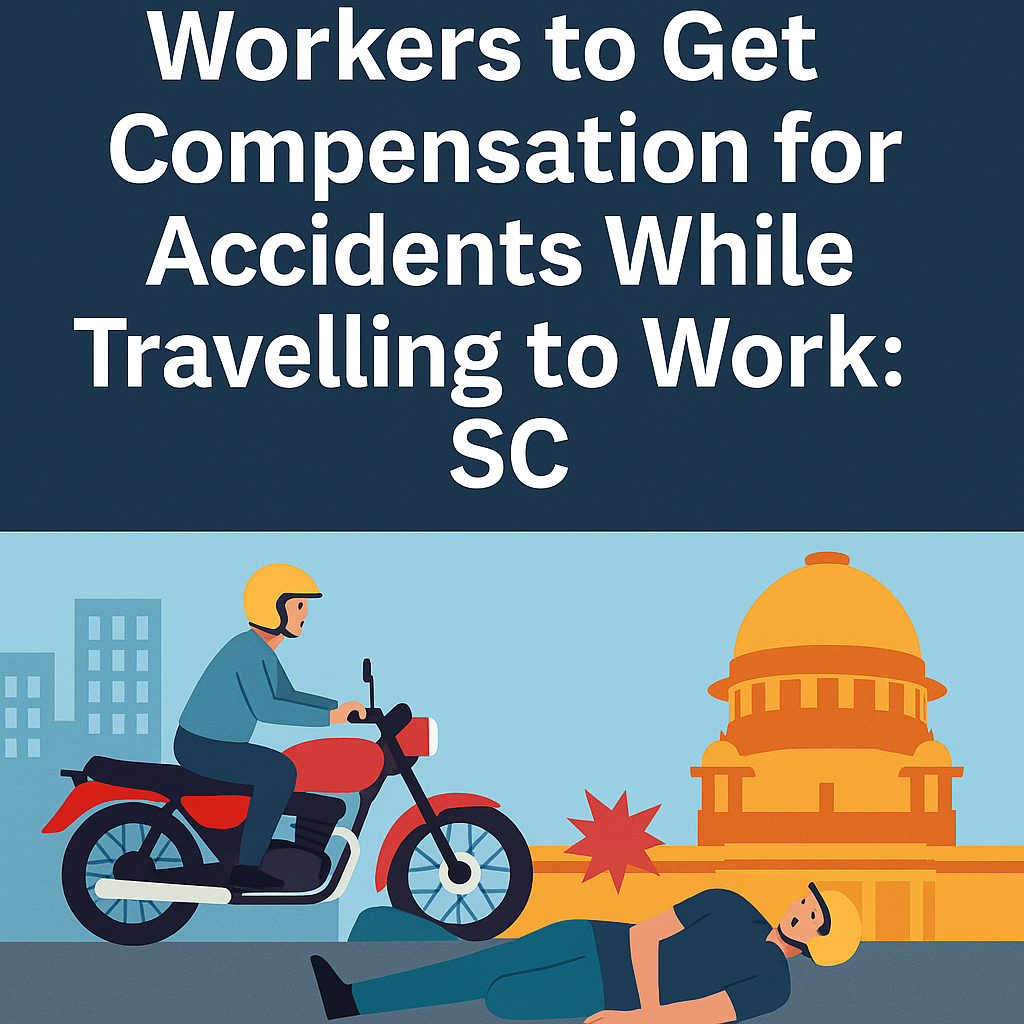
New Delhi: Millions of Indian workers will now be eligible for compensation if they are injured or killed on their way to or from work. The Supreme Court has ruled that commute accidents can fall under the Employees’ Compensation Act, 1923, if a clear link to employment is proven.
The Case
The verdict came from a case involving Shahu Sugaonrao Jadhavar, a watchman at a sugar factory in Maharashtra. On April 22, 2003, his duty began at 3 a.m. While riding his motorcycle to work early in the morning, he met with a fatal accident just 5 km from the factory. He left behind his wife, four children, and mother.
Jadhavar’s family filed a claim under the EC Act. The commissioner for workmen’s compensation in Osmanabad awarded ₹3,26,140 with 12% annual interest, and ordered the employer to cover 50% of legal costs. The employer’s insurance company was held liable to pay.
High Court Reversal
The Bombay High Court overturned this award, stating the accident happened outside the factory premises and could not be considered as arising out of employment. This meant the family would not receive compensation.
Supreme Court’s Ruling
A bench of Justices Manoj Misra and KV Viswanathan disagreed. They held that “accident arising out of and in the course of employment” should include commute accidents if there is a clear connection between the time, place, and circumstances of the accident and the job.
The court noted that many Indian workers are not covered by the Employees’ State Insurance (ESI) scheme. Extending the scope of the EC Act therefore offers them crucial social security.
The Legal Test
The judgment clarified that:
- The commute must be part of a regular and timely journey.
- The connection between the accident and employment must be clear.
- Proof of this link is essential for a claim to succeed.
Wider Impact
The ruling restores the commissioner’s original award to Jadhavar’s family and sets a precedent for future cases. Experts have called it a progressive move that reflects the realities of modern work life, where commuting is unavoidable.
Worker unions say the decision recognises that risks exist not only in the workplace but also on the road to get there. Rural workers and those on late or early shifts, often travelling on less safe routes, stand to benefit the most.
Broader Protection
This decision expands the interpretation of the Employees’ Compensation Act to suit present-day needs. It ensures that workers are protected not only within their workplace but also on their way to and from it.
The court’s message is clear: employee welfare does not end at the factory gate.





















